'Sheikh Abdullah ruled the state with secular values. Post 1953, when he was sacked, corruption took over governance.'
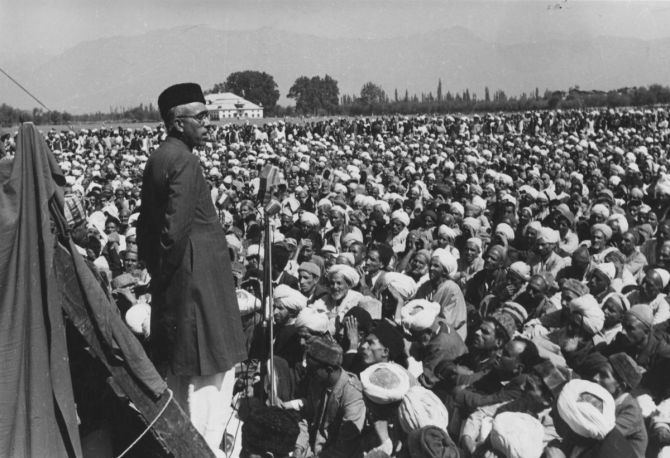
Moosa Raza, who served as Jammu and Kashmir chief secretary in 1989-1990, passed into the ages on Wednesday, May 8, 2024. He was 87.
Two years ago, Syed Firdaus Ashraf/Rediff.com spoke to Mr Raza, the author of Kashmir: Land of Regrets, to find out more about the Kashmir he knew during his tenure in the state.
Mr Raza, who was born and raised in Tamil Nadu, was an IAS officer of the 1960 batch from the Gujarat cadre. He was J&K chief secretary when Dr Rubaiya Sayeed, then Union home minister Mufti Mohammad Sayeed's daughter, was kidnapped, which he wrote about in his book, an excerpt of which you can read in the first link on the left.
- First Part of the Interview: 'No hate calls from Kashmir mosques on January 19, 1990'
The success of the film Kashmir Files started a debate in the country about who was responsible for the events that happened in Kashmir in 1990, which led to the rise of terrorism. What is your take on it?
I left Kashmir in January 1990. The exodus of Kashmiri Pandits happened after that.
When they left Kashmir, Jagmohan was ruling the state as its governor because (chief minister) Farooq Abdullah and his cabinet had resigned.
I was also not there at the time when the exodus happened. Before Jagmohan, Governor K V Krishna Rao (the former army chief) was in charge and he too had left the state.
The situation in J&K was single-handedly taken care of by Governor Jagmohan.
Therefore, the exodus of Kashmiri Pandits took place during Jagmohan's time.
What was the triggering point for the alienation of Kashmiri Muslims from the Indian State?
It started from 1953 after Sheikh Abdullah was arrested and exiled from J&K. After that, Bakshi Ghulam Mohammad was appointed as prime minister of J&K. He was given the designation of PM instead of chief minister, which came into use in later years.
Kashmiris were not very happy with Bakshi becoming the head of their state.
I was undergoing my IAS (Indian Administrative Service) training in 1960 when Bakshi was ruling the state.
We met many poor Kashmiris at that time and got a first-hand experience of Bakshi's rule.
We went to Gulmarg and met a horse owner who took us for a ride. He told us halfway down the hill that he wants his fee of Rs 10 before we reached the plains. I told him that we have not reached the spot so how can I pay you?
He told us if we pay at the destination, the contractor will take a cut of Rs 5. I asked him why doesn't he lodge a complaint?
"To whom should I complain?" he asked, "the contractor is Bakshi saab's man and the money goes all the way to the top."
Similar was the case of shikara boatmen and houseboat owners whom I met. The alienation (with the Indian State) started from that point only.
The state government did not intervene.
When I reached a village near Gurez, which is close to the Pakistan border in 1988-1989, the villagers told me that I was the second IAS officer of chief secretary level who had come after 25 years to see them.
Before me there was a gentleman called Nirmal Mukherjee who visited them as chief secretary.
Did things not improve when Indira Gandhi brought back Sheikh Abdullah from exile and reinstated him in J&K?
By the time Sheikh Abdullah came back from exile, the corrupt system had overtaken the J&K administration and politics.
I recall I had gone to meet (the late) Maulana Ataulla Suhrawardy at his home for a meal.
He was a minister in the Farooq Abdullah government. He told me that when Sheikh Abdullah came to power in 1975, he tried his best to stop corruption in J&K but failed.
Sheikh Abdullah started an anti-corruption crusade, but his own supporters went with a delegation and told him that he was not in J&K for last the 20 years during which they went through very difficult times financially.
In other words, they wanted Sheikh to look the other way on the issue of corruption.
According to Suhrawardy, Sheikh's supporters told him that during the governments of Bakshi Ghulam Mohammed (1953-1962), Ghulam Mohammed Sadiq (1964-1967) and Syed Mir Qasim (1971-1972), their supporters made a lot of money and were now staying in huge mansions whereas Sheikh's supporters lived in penury.
Moreover, they told him that they were not sure for how long Indira Gandhi would let him continue as the chief minister and whether he will be sent on exile again.
So, they requested Sheikh that he let them earn some money too, as they had only seen poverty after India's Independence for being his supporters.
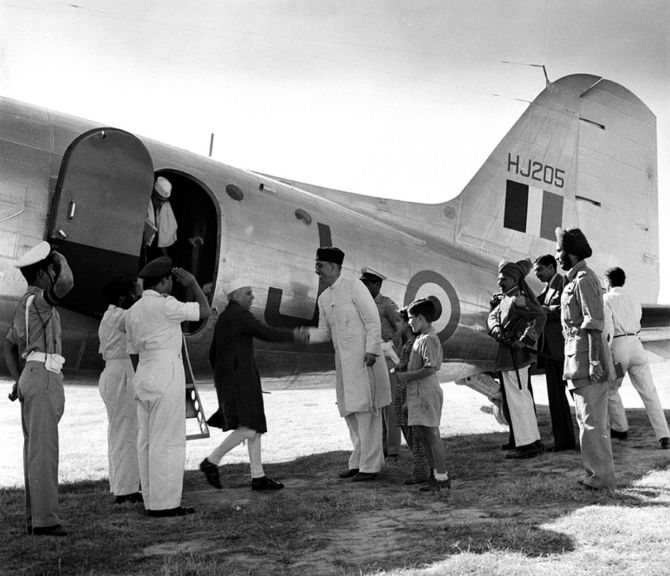
Does it mean Jawaharlal Nehru's move to arrest Sheikh Abdullah in 1953 and send him to exile, because he was planning to demand independence for J&K, was a mistake?
He (Nehru) acknowledged that in a letter to (senior Congress leader) Karan Singh, who is the son of (the last maharaja of Kashmir) Hari Singh.
He admitted it was not a right step. But his hypocrisy was that he did not release Sheikh and bring him back to J&K.
He could have done that after convincing Bakshi Ghulam Mohammad, but he did not do that.
Why was it necessary to arrest and exile Sheikh Abdullah?
Many books have been written on this issue.
Sheikh has himself written about this in his autobiography (Aatish-i-Chinar).
If you read those, you will get the answer.
Is it true that Nehru was upset over Bharatiya Jan Sangh founder Syama Prasad Mookerjee's mysterious death in Kashmir and he felt that Sheikh was somehow responsible for it?
He (Mookerjee) died mysteriously, that is true, but there was no evidence that the J&K government or any of its leaders were involved in it.
No proof was found of the state government's complicity. Even today, there is none.
How did the J&K issue became a Hindu-Muslim problem? Why did people abandon the cause of Kashmiriyat?
It is a long history and it started right from the day when Mughal Emperor Akbar captured Kashmir.
The (Sunni) Muslims of Kashmir accepted Mughals as their ruler, but the Shias started a huge revolt against them.
When Jehangir ascended to the throne, he often visited Kashmir. He used to love the place and became popular among Kashmiris.
Post Mughal rule, the Afghans conquered Kashmir (1747-1819) and they ruled the state brutally by torturing its Muslim population.
Kashmiri Pandits became the administrators of Afghan rule and supported them when they were torturing Kashmiri Muslims.
Many ministries of the Afghans had Kashmiri Pandits even in Kabul.
So the Afghan rulers, who were themselves Muslims, were good to Kashmiri Pandits but not to Kashmiri Muslims?
They only wanted money from Kashmir and they used Kashmiri Pandits to solve the taxation problems and get money out of the state.
After the Afghan rule, Sikh rule came (in 1819) for 30 years and they demolished many mosques.
I have mentioned all this in my book (Kashmir: Land of Regrets).
Did this happen during Maharaja Ranjit Singh's time?
Soon after Maharaja Ranjit Singh. His advisor Gulab Singh, who established Dogra rule, was a very cruel man. He used to skin Kashmiris alive. Dogra rule was very bad for Kashmiri Muslims.
So historically, Kashmiri Pandits and Kashmiri Muslims never got along. What happened during Partition?
Sheikh Abdullah was a genuinely secular man. He made J&K a secular state after Hari Singh acceded to India and left the state.
So communal trouble got buried in 1947 post Sheikh's rule?
He did that. He maintained a very balanced rule in the state by keeping every community happy.
He kept Kashmiri Pandits in his cabinet who were given senior positions.
He ruled the state with secular values. Post 1953, when he was sacked, corruption took over governance.
Did any communal tension exist between Kashmiri Pandits and Muslims from 1953 to 1989, when terrorism broke out?
One has to understand the concept of collective memory among Indians.
This is true for Kashmiri Muslims and even Gujarati Hindus.
The Gujarati Hindus became collectively communal after the raids of Mahmud Ghaznavi on the Somnath temple in the 10th century. Bards have written songs about his atrocities historically.
The Gujarat riots of 2002, where Muslims were at the receiving end, happened because of the collective memory of Hindus against Ghaznavi.
This collective memory is not easy to erase from people's mind.
Even today, anti-Muslim sentiment is working in North India because of the collective memory of Hindus against the Muslim invaders who looted and plundered.
I am not talking about all Hindus, but there is a high percentage of Hindus who think like that.

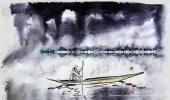

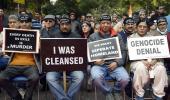
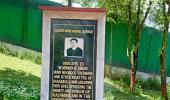




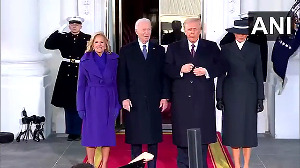
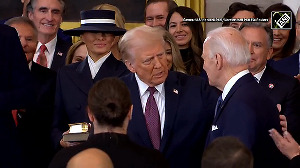
 © 2025
© 2025